Faith and Supernatural
 It’s always disappointing to read casual, dismissive references to Supernatural as simply a fantasy genre show featuring two hunky brothers. While that superficial description of the show is true on its face, it merely provides the framework for a profound exploration of a multitude of bigger themes: loyalty, family, morality, self-sacrifice, free will and destiny, to name just a few. Indeed, this season culminated in an argument between the brothers about the sometimes blurry line between good and evil.
It’s always disappointing to read casual, dismissive references to Supernatural as simply a fantasy genre show featuring two hunky brothers. While that superficial description of the show is true on its face, it merely provides the framework for a profound exploration of a multitude of bigger themes: loyalty, family, morality, self-sacrifice, free will and destiny, to name just a few. Indeed, this season culminated in an argument between the brothers about the sometimes blurry line between good and evil.
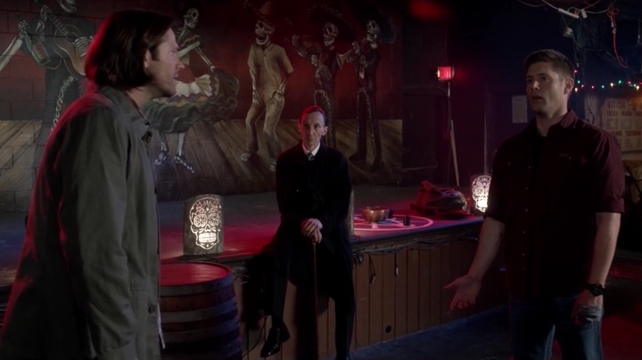
One recurring theme on Supernatural practically since its inception has been faith, both in the religious and secular sense. Faith and religion are often intertwined, but the show has portrayed these two concepts very differently.
The show has not shied away from criticizing religion and in fact has taken a decidedly jaundiced view of those spiritual beings associated with Christianity: God and angels. The negative portrayal of these beings was a deliberate creative decision. Kripke originally resisted introducing angels into the show’s mythology because he had the notion “that the only forces for good in the universe were humans” and that “in the humanity lay the power and the ability and those tiny moments of grace which allows good to triumph.” Therefore, he decided to characterize the angels as “dicks” and determined from day one “that they were ultimately going to be bad guys.”
From the very beginning the angels behaved reprehensibly. From Uriel and Zachariah, to the archangels, Naomi and Metatron, the angels unleashed all manner of horrors upon each other and upon those that Balthazar charmingly described as the “hairless apes.” While not all angels shared Lucifer’s genocidal hatred of humanity, their sentiments towards humans often reflected a difference of degree rather than kind. In their viciousness and cruel snarkiness, some angels seemed indistinguishable from the demons. Essentially, the prevailing view among even the most benign angels was that humans are inherently lesser beings, undeserving of much consideration.
Even Cas has often behaved like a typical angel: cold, calculating, and relatively indifferent to human suffering. This attitude was epitomized in Season 6, in which Cas was actually the “big bad.”
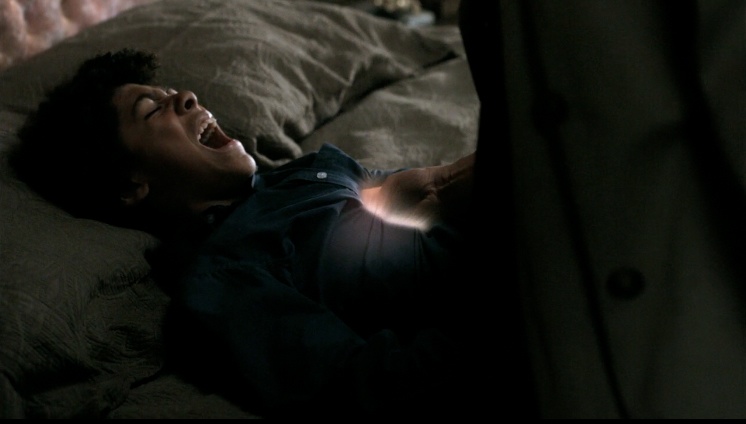
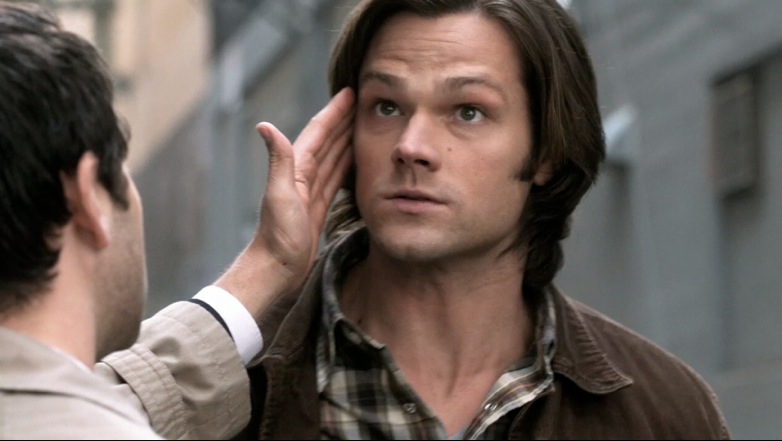
Only after Metatron took Cas’s grace, relegating him to fully human status, did Cas finally come to fully appreciate the beauty and value of humanity, in all of its nobility and failings. He expressed as much to Sam in “First Born.” This makes him unique among angels.
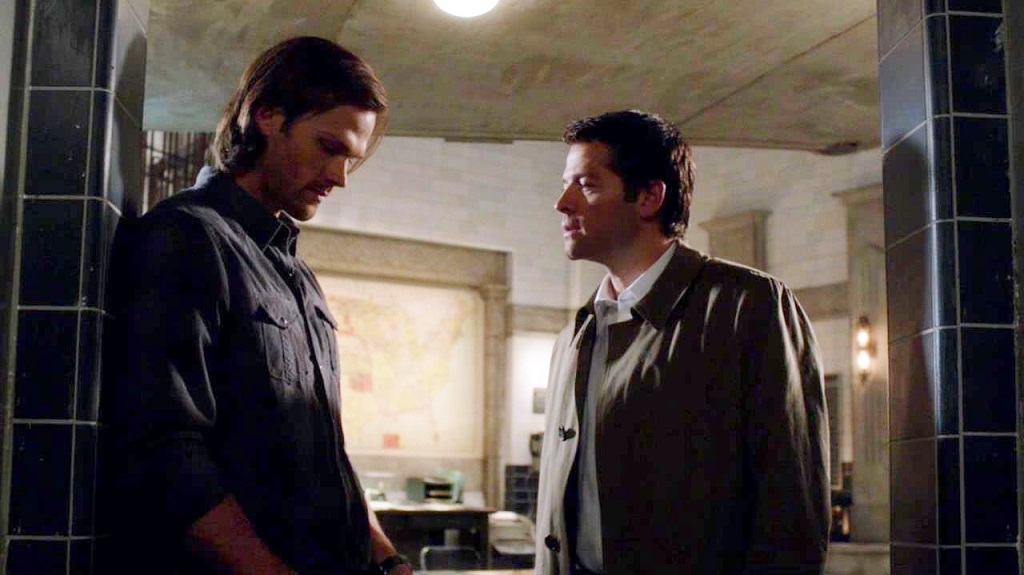
While a seemingly more benevolent group of angels is currently running heaven under Hannah’s leadership, heaven remains a sterile place, devoid of joy and rapture. The souls are at peace, but consigned to a solitary eternity, restricted to just one limited version of happiness. The only exception is that of soulmates, like Jimmy and Amelia, who can spend eternity together.
Supernatural has depicted God only somewhat more favorably than the angels. God did help the Winchesters by transporting them onto the plane after Lucifer was freed and by resurrecting Cas after he sacrificed himself in “Point of No Return.” However, in “Dark Side of the Moon” Joshua regretfully informed the brothers that God was done intervening in the apocalypse because it’s “not his problem” and that God wanted the brothers to “back off.” This harsh portrayal of the deity possibly was intended to be mitigated by the implication in “Swan Song” that Chuck was God, because Chuck was a likeable character who tried to assist the brothers. He helped to scare off Lilith (albeit reluctantly), and he told Dean the locations of Sam’s final confrontation with Lilith and of the battle between Michael and Lucifer.
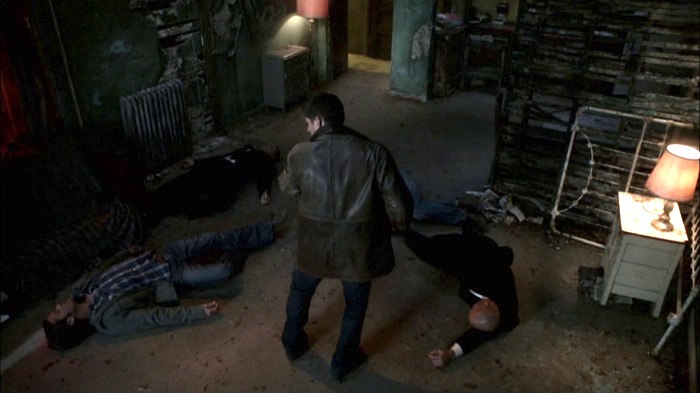
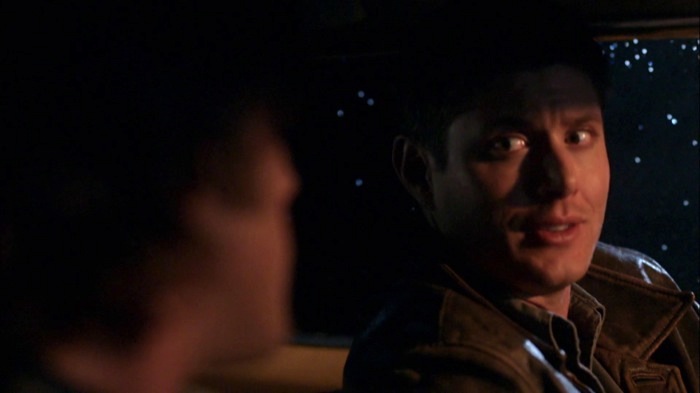
Chuck’s narration of “Swan Song” also displayed a genuine fondness and admiration for the Winchesters, and he spoke approvingly of their choosing family above all else. Yet this vision of a more loving God was completely undermined by his last scene in “Swan Song”; he finished his story, stood, and vanished with a smile on his face, seemingly unconcerned that Sam had been condemned to eternal torment and Dean relegated to an existence in which true happiness would forever elude him because of his brother’s tragic fate.
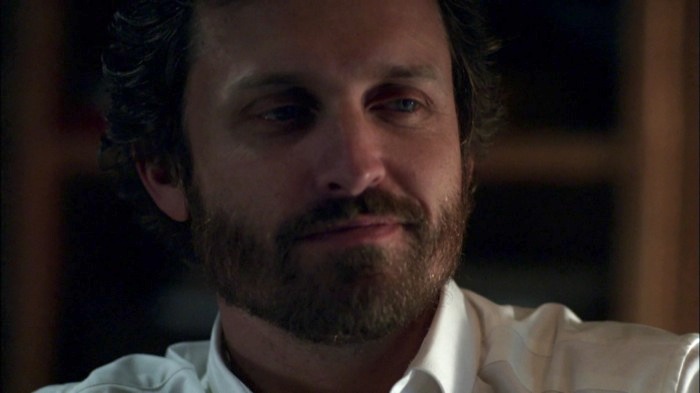
That outcome hardly seemed something to smile about or celebrate. Indeed, God/Chuck’s attitude was akin to Metatron’s in some respects, because he seemed to regard the Winchesters as beloved characters who had admirably performed their roles, rather than flesh and blood people who now had to suffer the terrible consequences of their sacrifice.
While spiritual beings have fared quite poorly in their portrayal on Supernatural, the show has been far more evenhanded in its depiction of people of faith, whether laymen or clerics. For example, “Faith” provided a nuanced representation of faith. Sam and Dean themselves displayed opposing views of faith healer Roy: Sam was willing to believe that he was legitimate while Dean flatly rejected the possibility. Roy’s wife Sue Ann was ultimately revealed as the “bad guy” who used her own corrupted version of faith to determine those who deserved to die so that Roy might heal others. Roy, however, was portrayed as a good man who sincerely believed that God had granted him the power to spare the lives of those selected by him through divine guidance.
Layla provided a particularly sympathetic depiction of a person of faith. She maintained her faith even though Roy ultimately was unable to heal her. She told Dean that “if you’re gonna have faith you can’t just have it when the miracles happen. You have to have it when they don’t.” Her serene expression of her faith was quite moving, and even though he knew that the faith healings were a fraud, a clearly emotional Dean told Layla that while he was not much for praying, he would pray for her. She deemed this a miracle in and of itself. The very act of faith, however misplaced, was seen as admirable by Dean, and by extension the show.
Like Layla, Jimmy Novak exemplified a devout person who let his faith in God guide his life. He had devoted a great deal of thought and prayer to his decision to act as Cas’s vessel. However, he came to regret this decision. While possessed by Cas, he had witnessed enough questionable actions by the angels to raise serious doubts about the wisdom and value of his choice. His faith, unlike Layla’s, was largely portrayed as unwarranted and ultimately harmful. It lead to his own destruction and nearly resulted in the deaths of his wife and daughter.
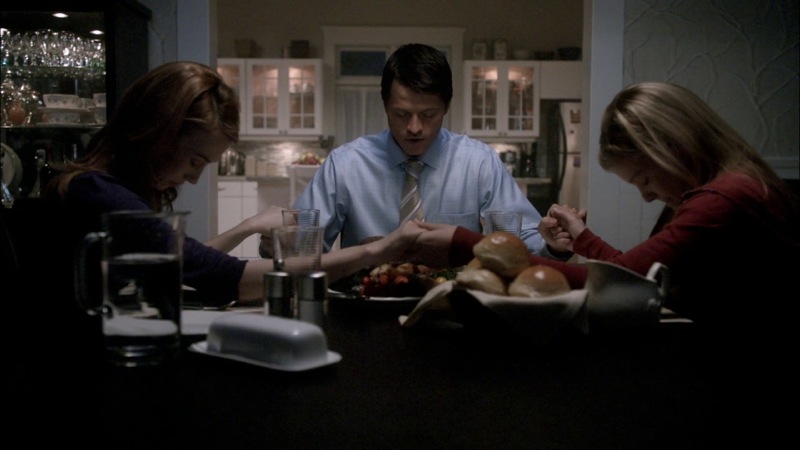
As in “Faith”, the Season 5 episode “99 Problems” depicted how faith can be a double-edged sword. It inspires in some people the deepest expressions of love, kindness and goodness; it inspires others to give free rein to their baser instincts. Under Pastor Gideon’s guidance, most of the townspeople were motivated by their faith to work together to fight evil, caring for and supporting each other throughout the ordeal. Others, however, ultimately used their faith to justify the murder of supposedly sinful men, women and children at the behest of the “prophet” Leah, simply because the angels had supposedly decreed it.
Under Carver, Supernatural at times has been less subtle in its examination of issues of faith. Buddy Boyle and his followers who chose to become vessels of the fallen angels in Season 9 were portrayed as misguided zealots who rashly put their faith in the angels; the resulting explosion of one of the would-be vessels was played for laughs. Indeed, most of those who chose angel possession in Season 9, as well as those who quickly hailed Matatron as a miracle worker, were caricatured as gullible fools.
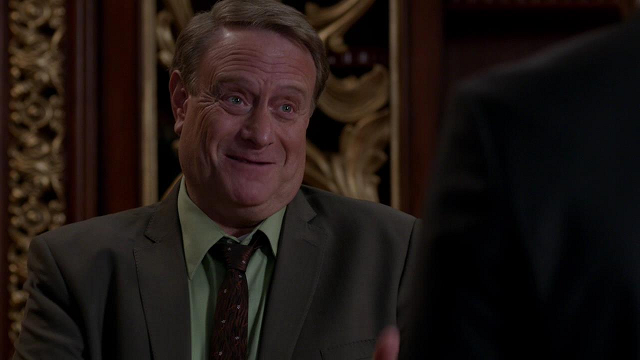
In stark contrast to these depictions of faith was the scene in “I’m No Angel” in which Cas converses with the woman who was in church praying for her gravely ill husband. Like Layla, this woman possessed a strong, tranquil faith that her prayers would be heard. When Cas bluntly tried to tell her that nobody was listening, she calmly told him that his lack of faith didn’t cancel out what she believed because “it doesn’t work that way.” It was a powerful moment, and seemed to give Cas pause. Even though Cas knew that God was in the wind and that there was no one in heaven save Metatron, he seemed to be impressed by, and even envious of, the woman’s steadfast belief, rather than dismissive of it.
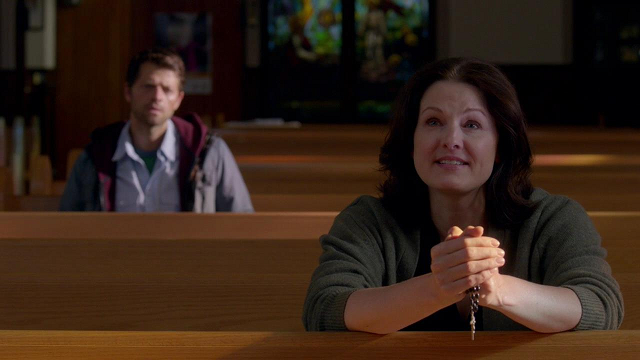
The depiction of the priest who performed the demon cure in Season 8’s “Clip Show” was also nuanced. While he was strong in his faith that he had the power to cure demons and that his goals were moral and right, there was a question as to whether his actions were too extreme, and potentially exacted too high a cost. One attempted cure resulted in the human host dying and the demon escaping. Dean also raised the question of what becomes of the human host after the demon is cured? One of the outstanding aspects of Supernatural is its tendency to raise these types of questions without necessarily answering them. As in real life, the moral issues depicted on the show are often not susceptible to easy, black and white answers.
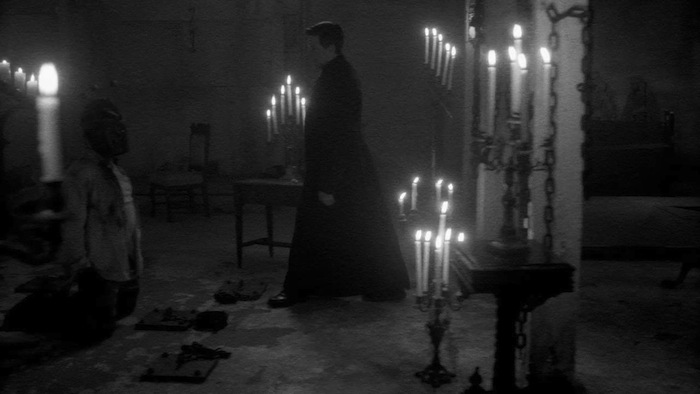
Unlike that priest, the young nun in “Mother’s Little Helper” presented a sympathetic portrait of someone whose faith had simply not been strong enough. When confronted in 1958 by the pure evil that was Abaddon, she was too afraid to do anything but abandon her vocation and leave the convent. She never warned anyone that Josie was possessed by Abaddon, and as an elderly woman she confessed to Sam that this was her greatest shame.
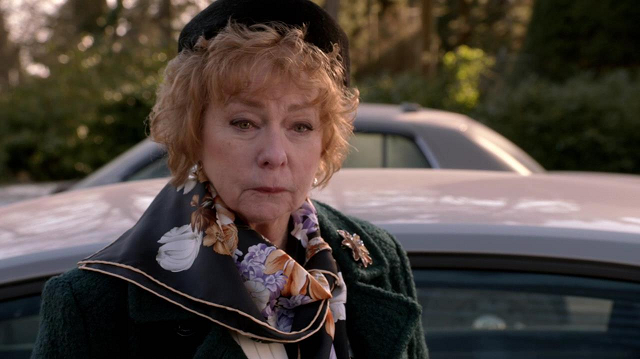
The most thorough portrayal of faith on Supernatural occurred in Season 2’s “Houses of the Holy”. When they received the script for this episode, Jared and Jensen apparently were concerned that the show was veering too much into religion, but their fears were groundless. The script by Sera Gamble involved no proselytizing or endorsement of religion. Rather, this outstanding episode provided an in-depth exploration of the brothers’ attitudes towards faith which beautifully illuminated the differences in their characters.
There are actually four different aspects of faith presented in the episode. Father Reynolds provided a conventional portrait of a person of faith. He was a good man who, when faced with the violence of the surrounding area which resulted in Father Gregory’s murder, prayed to God for deliverance from it. As a priest, he understood that not all prayers are answered, at least not in the way one would hope. But he also knew that God would not send an angel to commit murder. In his unwavering faith, he was able to persuade Gregory that what Gregory had done was not God’s will, and not the solution that Reynolds had prayed for.
Father Gregory, however, exemplified a person whose faith had been warped. His violent death had transformed him into a vengeful spirit who convinced lost, sinful people to murder those whom Gregory knew to be evil. He was convinced that he was an angel doing God’s will by punishing the wicked while offering redemption to those in need of it. Gregory was not completely unsympathetic, since his victims were indeed murderers and child abusers. Yet as Sam reminded him, he had also condemned to incarceration the unfortunate people whom he induced to commit the murders. When Reynolds finally convinced him that he was not an angel and that he had violated the most basic commandment that “thou shalt not kill,” a devastated Father Gregory quietly accepted absolution.
When the brothers initially began their investigation, Dean was baffled by Sam’s willingness to even entertain the possibility that an avenging angel was involved. Dean refused to believe the lore about angels because he had seen no proof of it, and his frustration grew as Sam stubbornly defended the possibility of angelic intervention. In a beautifully acted scene, Dean finally erupted and derisively demanded, “What’s next, you gonna start praying every day?” to which Sam hesitantly, almost defiantly, responded, “I do. I have for a long time.” To this, Dean simply muttered, “Huh, the things you learn about a guy.” With just these few lines Jared and Jensen conveyed volumes. Sam made his admission reluctantly because he feared Dean’s ridicule. But in this instance Dean understood Sam’s hesitation, and therefore simply expressed his surprise at Sam’s confession. His tone and his expression, however, clearly betrayed his displeasure.
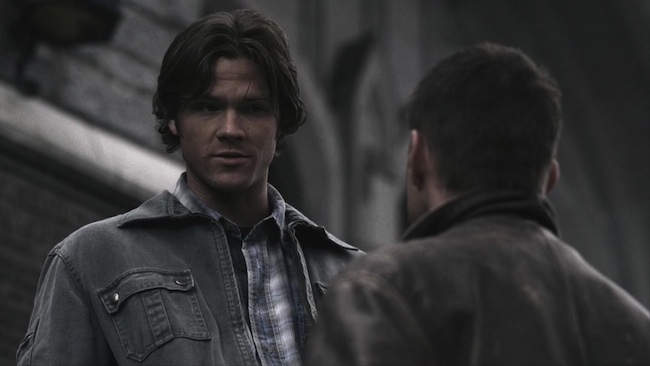
At the end of the episode neither brother’s expectation had been met. Dean had learned that the man Sam was supposed to kill was indeed evil, and he observed the man being killed in a striking and bizarre fashion.
Sam had learned that there was no angel, just Father Gregory. A despondent Sam admitted that he feared his destiny and what he might become, and Dean reassured him that “I’m watching out for you.”
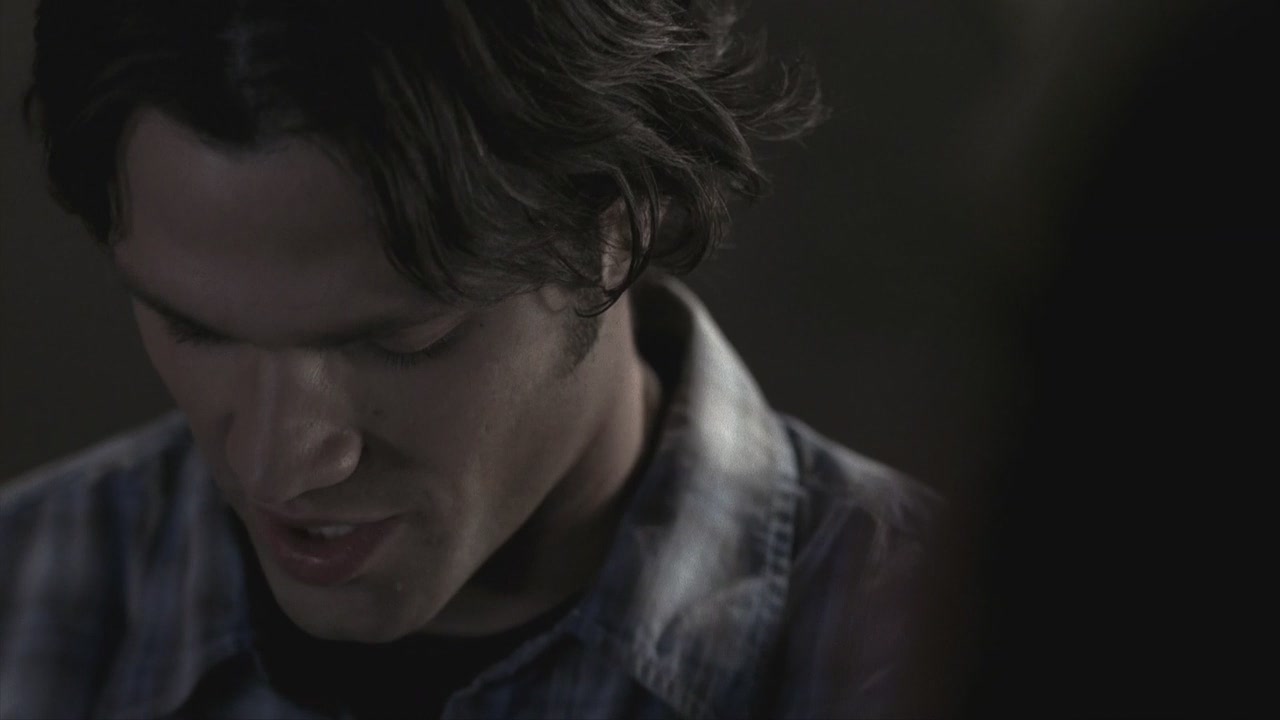
With tears in his eyes, Sam confessed that he had been desperately hoping that “some higher power, some greater good” was watching out for him as well, and that “maybe I could be saved.” Dean listened intently, and then quietly told Sam about the man he had been following: “the way he died, if I hadn’t seen it with my own two eyes I never would have believed it.” When Sam asked what he had seen, Dean answered “maybe….God’s will.”
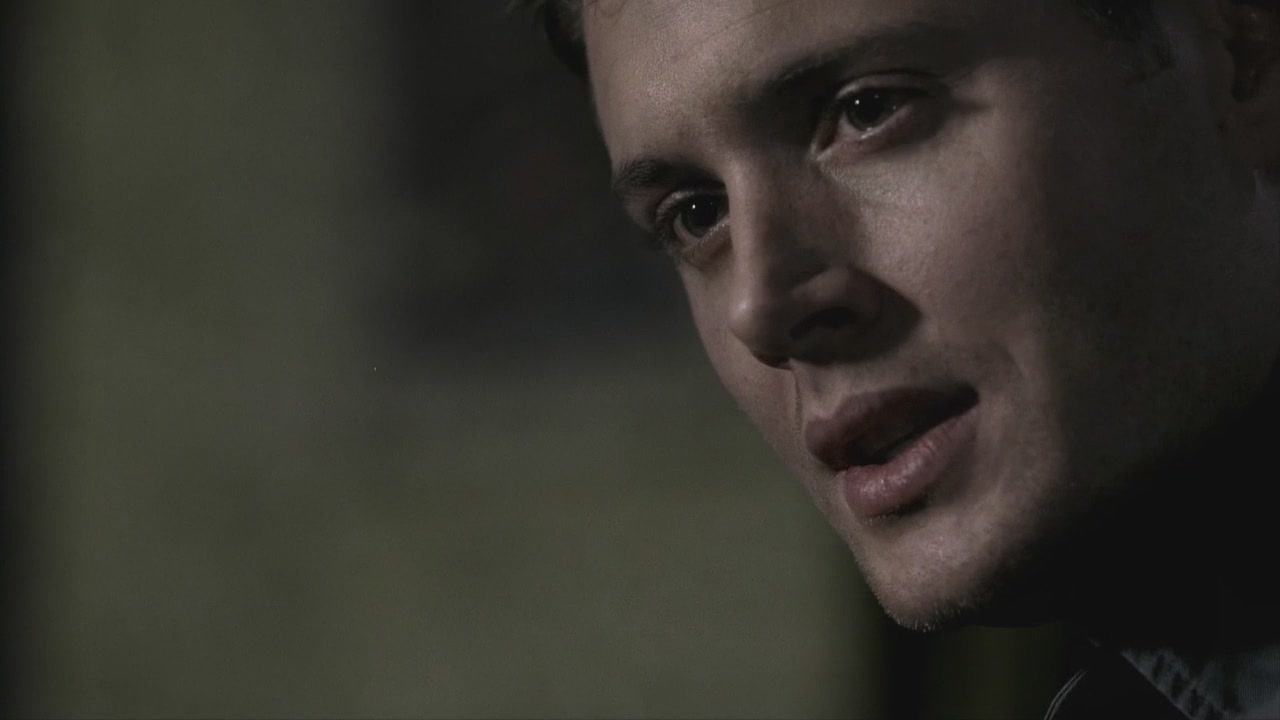
This terrific scene is one of my favorites in the entire series. Between the music, the direction and the brilliant acting, it is profoundly moving. Dean was clearly moved by Sam’s confession and assured Sam that he would watch out for him. Sam then trustingly confided his deepest fear to Dean. And at the very end, Dean reluctantly allowed for the possibility that Sam might be right to believe in a higher power.
When I first viewed this episode, I was almost as surprised as Dean was by Sam’s admission that he prayed every day. I was astounded that the show would add this layer to the character, that it would have this smart, tough, good-looking young man admit to that degree of spirituality. But the more I thought about it, the more the attitudes of both brothers made perfect sense.
Dean’s lack of faith as explained in this episode was fully consistent with his character and life experiences. Dean had had a brief taste of a perfect family life, with a loving mother, a doting father, and a sweet baby brother.
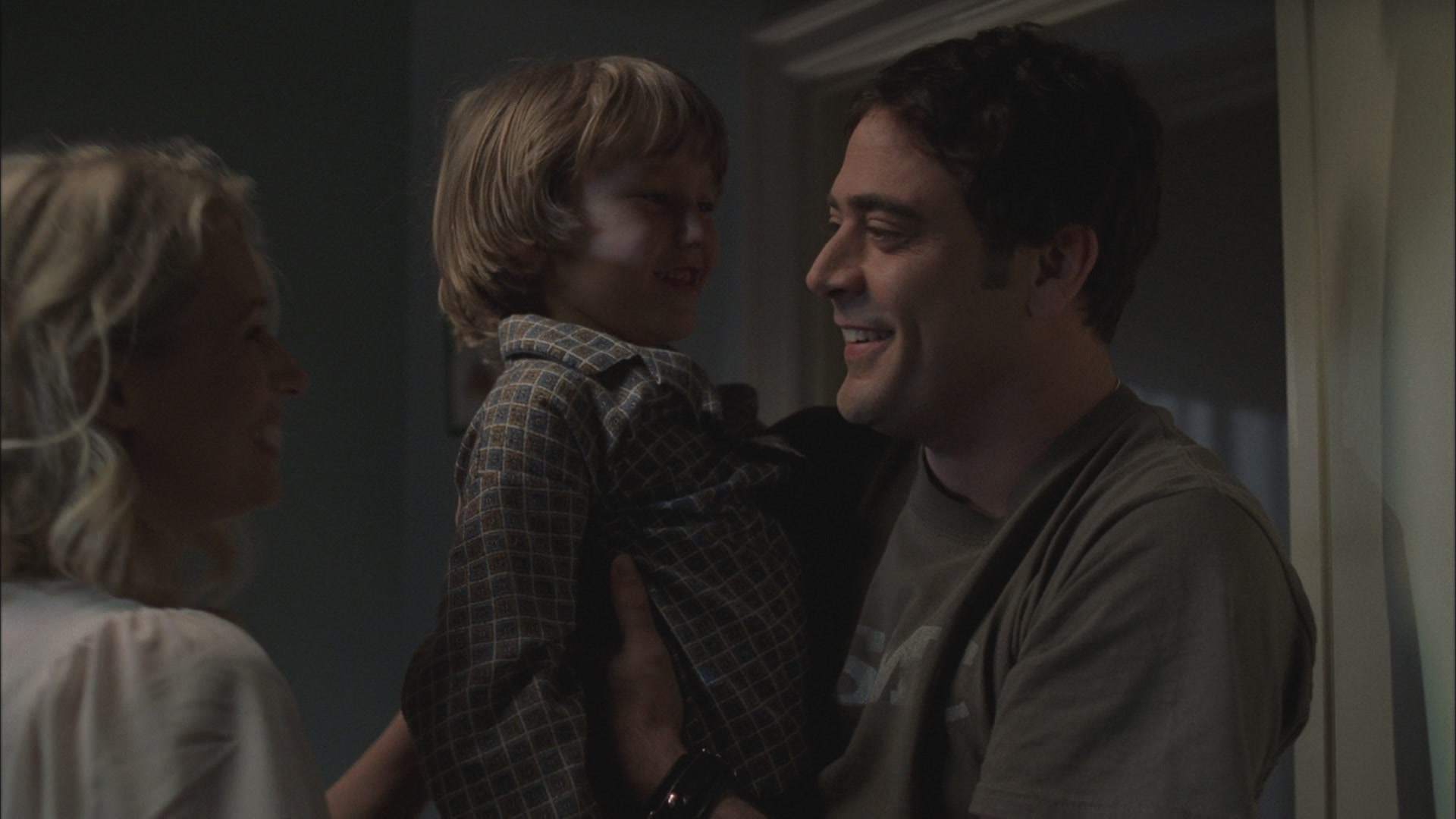
Then, in a single act of violence he lost all of it. His mother was dead, his father became hardened and revenge-obsessed, and his baby brother became his responsibility. Dean’s childhood essentially ended at age four. John trained him to be a warrior, to be constantly vigilant, to trust nobody, to rely on nobody but family, and above all else, to look out for Sammy. Dean learned his lesson well. At one point in the episode he tells Sam that one of the perks of the job is that they don’t have to operate on faith. He revealed that Mary’s last words to him had been that angels were watching out for him, but “nothing protected her,” and he now knows that there is “no higher power or God, just chaos and violence.” With all that he has lost, Dean believes it is up to him alone to protect what he has left. He is unwilling and unable to put his faith in anyone or anything else.
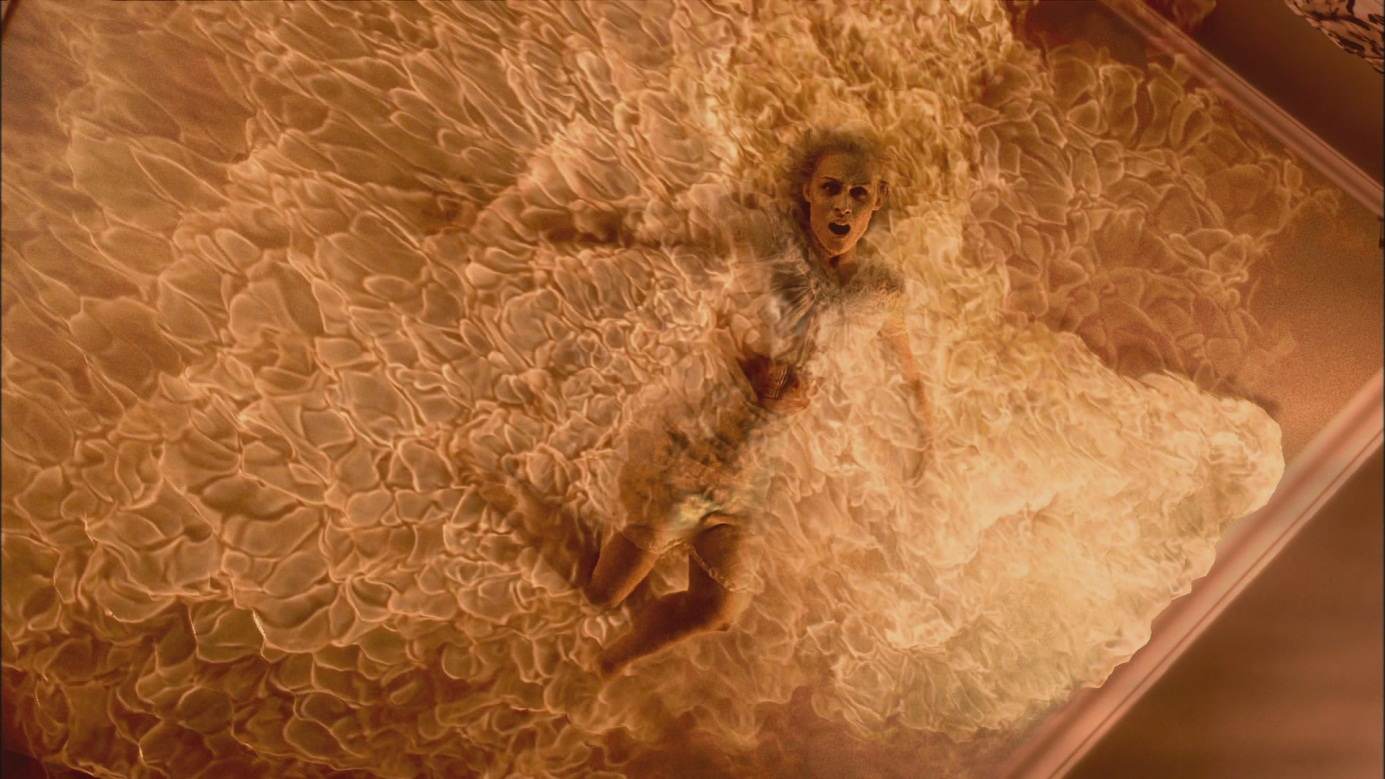
Mary’s death had a very different effect on Sam. He didn’t remember Mary and hadn’t experienced the briefly idyllic childhood that Dean had had. Furthermore, he had no memory of Mary’s murder, and John and Dean initially had tried to shield young Sam from the evil that existed. So Sam didn’t have the same hatred of evil that Dean had, or feel the same pull of the hunting life as a means of fighting evil. He simply strongly felt that this was not the life he wanted. He had always hoped and strived for a different, more normal life, away from the violence and evil. Prayer is an act of faith, and of the belief that things will work out for the best. Sam was looking for something he had never had, something better, while Dean was clinging to what little he had left.
“Houses of the Holy” accomplished what the best Supernatural episodes do: it used the events in the story to reveal new insights into the brothers’ characters. In this case, Sam’s and Dean’s contrasting attitudes towards religious faith are representative of the way that faith in the secular sense has influenced their characters throughout the series.
Faith and hope often go hand in glove, and while Sam spent much of Season 2 doubting his ability to overcome his destiny, this attitude seemed uncharacteristic of him. Sam has typically been more hopeful and optimistic than Dean. For example, in Season 3 Sam never stopped believing that he could save Dean from hell, while Dean vacillated between hope and despair.
The start of Season 5 saw both brothers in a wretched place emotionally. The events of Season 4 had shattered not only Dean’s trust in Sam, but Sam’s trust in himself. They both felt helpless to avert the looming apocalypse. However, the revelation in “Free To Be You and Me” that he was Lucifer’s true vessel galvanized in Sam a renewed determination. From that point forward, Sam rarely wavered in his belief that he and Dean could succeed against Michael and Lucifer.
Unlike Sam, Dean was plagued by ongoing doubts. Joshua told Dean in “Dark Side of the Moon”: “you’re losing faith in yourself, your brother.” When Dean told Sam in “Point of No Return” that he didn’t believe Sam was strong enough to resist Lucifer, Sam was devastated by this lack of faith. But because of his steadfast belief in Dean, he decided to bring Dean along to help rescue Adam. An angry Cas told Dean, “I don’t have the same faith in you that Sam does.” It was Sam’s faith in Dean that ultimately enabled Dean to resist saying yes to Michael, because he simply didn’t want to let Sam down. Dean explained to Sam that he was used to thinking of him as a snot-nosed kid that he had to keep on the straight and narrow, but that, “If you’re grownup enough to find faith in me, the least I can do is return the favor.”
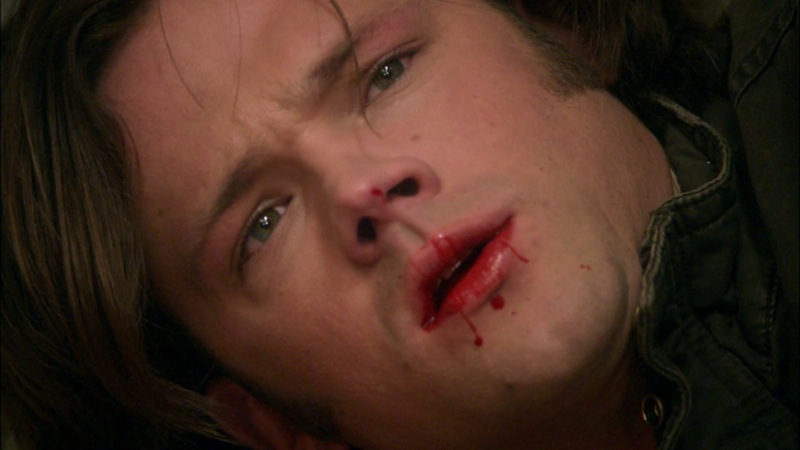
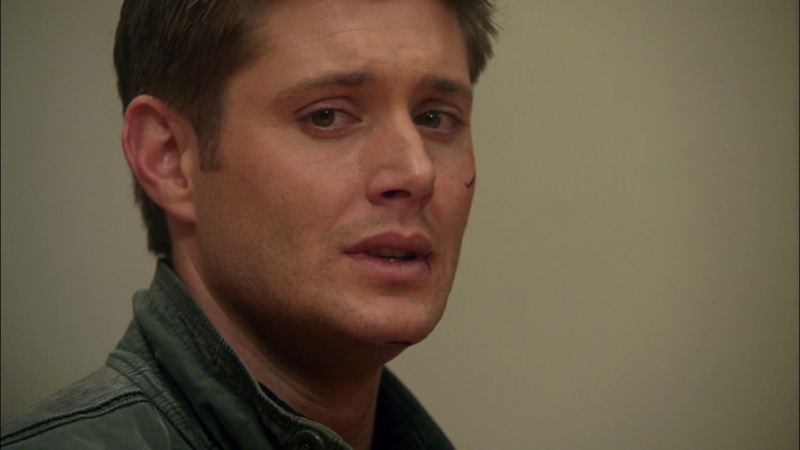
Dean’s faith in Sam faltered again when Sam wanted to say yes to Lucifer and jump in the pit. Oddly, it was Death who convinced him to trust in Sam. In “Two Minutes To Midnight” Death told Dean that he would give Dean his ring on the condition that he allow Sam to jump into the pit, because Death knew that Sam could do it. Consequently, Dean told Sam that he was on board with the plan although it went against every fiber in him, because watching out for Sam was “who I am.” Dean then added that if anyone could do it, Sam could. Ultimately, it was Dean’s presence at the cemetery and his strong faith in Sam that enabled Sam to overcome Lucifer.
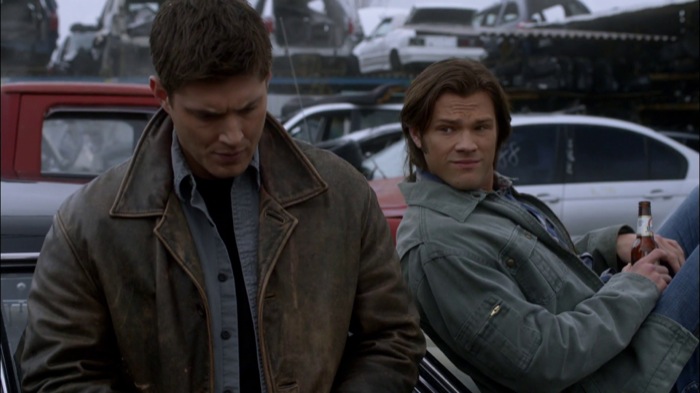
Old habits die hard, however, (and show runners change!) and Season 8 provided further evidence of the brothers’ contrasting tendencies regarding faith. In “Trial and Error” Dean confessed that he had resigned himself to a bloody end, gun in hand, while Sam admitted that he did see a light at the end of the tunnel and was hoping to take Dean there with him. Sam didn’t view the Trials as a suicide mission and he implored Dean to have faith in him and to trust him to complete the trials: “I believe in you Dean, so please, please, believe in me too.”

In “Man’s Best Friends With Benefits” Dean betrayed doubts about Sam’s ability to complete the Trials, and Sam accused him of only being able to trust in himself. At the end of that episode, however, Dean told Sam that if he said he was good, then Dean would back him one hundred percent. He reiterated this in “Clip Show” when he told the priest that Sam had accomplished things that Dean had thought impossible, and that “there’s not a doubt in my mind that he’s going to cross that finish line.”
However, in “Sacrifice” Dean once again expressed some doubts about whether Sam would succeed. He reminded Sam of the times he had let Dean down, and he told Cas that Sam needed a “chaperone” to complete the demon cure. I loved the brothers’ scene in the church at the end of “Sacrifice”, but the dialogue indicated that Dean continued to struggle with placing his faith in Sam. A distraught Sam confessed that his greatest sin was the many times he had let Dean down, and that he couldn’t do that again. Yet the gist of Dean’s impassioned response was NOT that he had complete faith in Sam, but rather that there was nothing he would ever, or had ever, put before Sam. It was as though they were having two different conversations: Sam was talking about faith and trust, and Dean was talking about love.
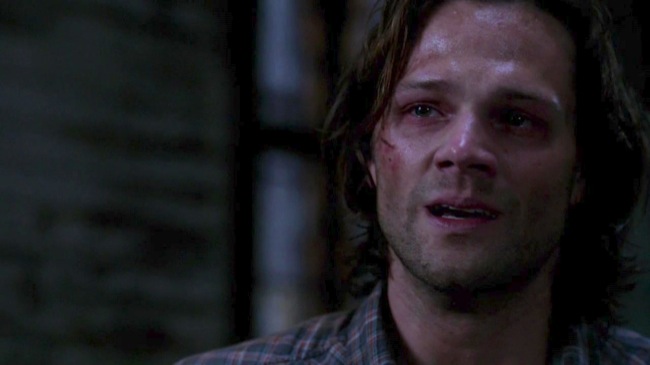
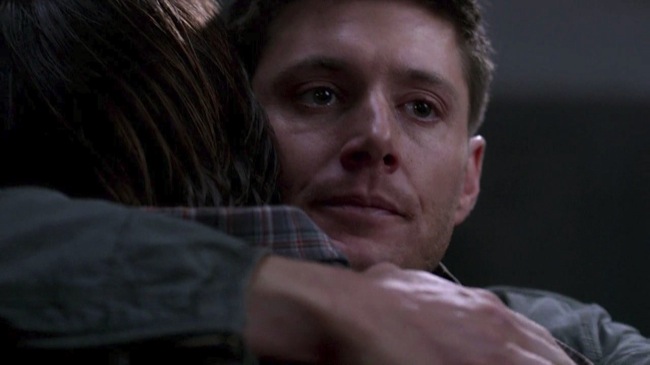
In Season 9, it was the very strength of Sam’s faith in Dean that heightened his feelings of betrayal and anger over the Gadreel possession. Moreover, it was the loss of Sam’s trust in him that largely precipitated Dean’s despair and his downward spiral in Season 9. Neither brother exhibited much belief in the other during the remainder of that season.
However, the theme of faith recurred throughout almost the entirety of Season 10, and many episodes exemplified the stark difference in the brothers’ attitudes on this issue. Time after time Sam exhorted Dean to keep fighting to find a cure for the Mark of Cain because Sam was convinced that one would be found. Yet these entreaties fell on deaf ears because Dean had given up, and he wanted Sam to give up as well. Right up until the last few minutes of “Brothers Keeper” Sam continued to beseech Dean to keep searching for a way to overcome the Mark. Then, in what would have been Sam’s final words to Dean as he awaited his death at Dean’s hands, he poignantly expressed his belief that Dean would one day find his way back and would remember “what it was to be good, what it was to love.” And just as in “Point of No Return,” Sam’s faith in Dean got through to him.
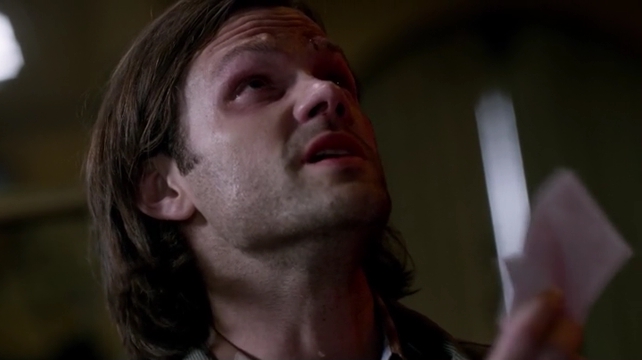
Everything that has happened to Sam and Dean from a young age forged their characters and the degree of faith and hope with which they regard the world and each other. Sam is the younger brother with an almost unwavering belief and trust in his big brother; he continually strives to be worthy of that same trust from Dean. Sam believes that their faith in each other will enable them to reach that light at the end of the tunnel. Dean is the older brother who sometimes has difficulty seeing past the evil that has dogged them their entire lives, and that he believes has destroyed any possibility of a normal life. He also continually struggles to reconcile his instinctive need to protect his little brother with his desire to place his faith in Sam. But if the Winchesters have learned anything from their trials and tribulations, it’s that they are their best, strongest selves, and can overcome any evil, only when they are truly united. Hopefully those are the Winchesters we will be seeing in Season 11.
******
Editor’s Note: I have often reflected on how Supernatural presents faith and religion. Samandean10 exploration of Supernatural‘s history with these subjects presents both its use and exploitation of the spiritual interpretations of these words, as well as how it presents the brothers’ faith in each other as a substitute for conventional constructs. What do you think of its presentation of faith, angels, religion, God and ultimately the brothers’ bond as their primary support system?


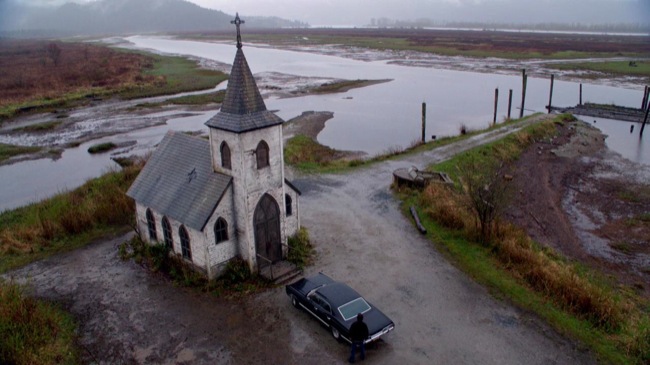
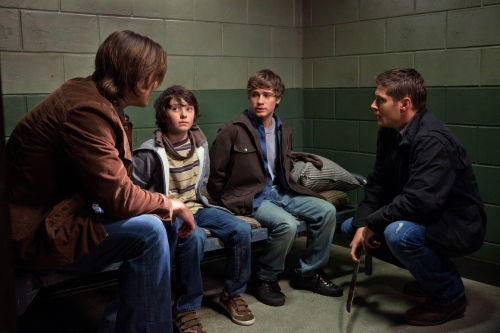
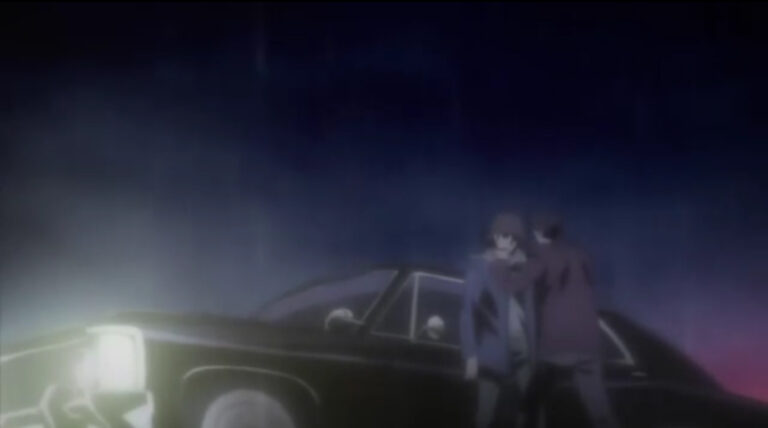
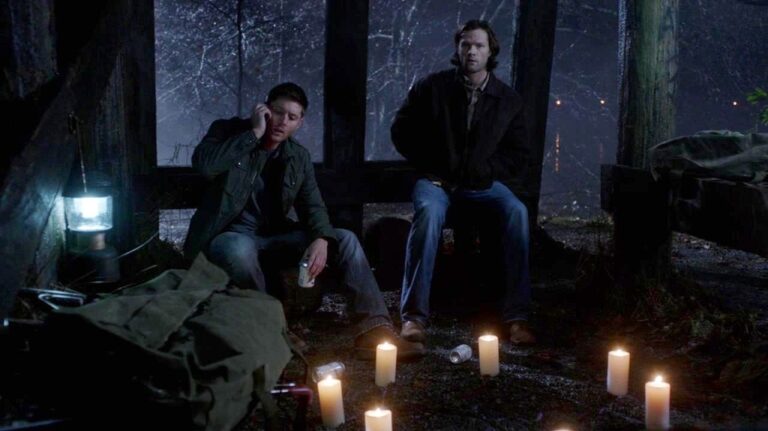
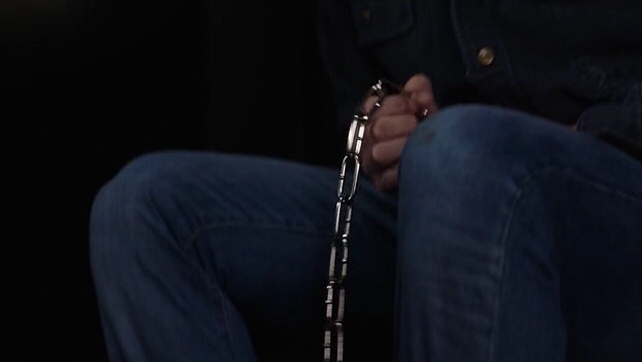
Fantastic article. You have done a fabulous job here with what are actually very profound and difficult themes. I thoroughly enjoyed this.
Thank you so much! One reason I love the show is that it provokes a lot of thought about issues like these. I’m so glad you enjoyed the article.
Congratulations on an amazing article Samandean10! It has always been the ongoing themes that made SN what it was. The last few seasons have lost sight of the fact that we, the viewers, see it as a continuing storyline but you did really well to pull in the later themes and match them to the older ones. the connections are well thought through.
Thanks eilf! I totally agree that it’s the ongoing themes that make SPN what it is. Continuity in those themes matters to me more than adherence to canon. As you probably know, I’ve been somewhat displeased (to put it mildly) with how Sam has been used and characterized under Carver. But when I was thinking through this article I realized that in at least one major respect Sam is still Sam- he places an almost unshakeable faith in his big brother (if you ignore season 9, which I prefer to do). It’s why I loved the finale so much. I know a lot of people see the parallels between the finale and Swan Song, and I do too. But to me the finale directly parallels Point of No Return, because Sam’s faith gets through to Dean. Anyway, I’m glad you liked the article. It ended up taking me much longer to write than I had anticipated!
I really do, you seem to have put a lot of work into it!
Ok at risk of setting off a firestorm, but this is what I believe and it is borne out in the episodes as far as I am concerned:
For me Sam’s faith in Dean was as strong in Season 9 as it was previously. Sam believed if he let Dean work through his guilt on his own he would come back to Sam and agree that they were equals and respect between them was required.
When that didn’t happen he thought that if he said they needed to work at being brothers that Dean would understand what he meant – because supposedly they understand each other – but Dean didn’t want to think about how they could do ‘being brothers’ better.
In The Purge he was trying to explain the problem – and he did it badly – and that is possibly the only point in the entire series where Sam has come close to losing faith in Dean, because Dean wouldn’t acknowledge any problem, all he did was reject Sam’s entire premise (and then later the show adjusted the premise, but in the episode, and ALL the prior episodes Sam’s premise was clear, he was standing by his principles, and a lot of it was a legitimate argument).
Even as Dean got angrier and more aggressive with him he believed that Dean could be talked out of killing him even under the mark of the blade and he continued to fight at his side believing that Dean would have his back. He was right about the last two. Sam also had Dean’s back whenever he was able to – ie Sam was in a position to do the rescuing.
I don’t believe that Sam stopped having faith in Dean.
I have to admit eilf, I kind of punted on season 9 because it provoked so much anger and vehement disagreement among viewers. So I kind of skirted the issue by limiting it to just a couple of sentences. But my feelings about it were similar to yours. In TP when Dean said he’d do it again, and Sam said “and THAT’S the problem,” Sam was justifiably disappointed that Dean discounted all of Sam’s understandable issues with the possession, and he was waiting for Dean to see and understand his side of it. But then the show went the route of portraying Dean as the victim and Sam as the one who was holding a grudge. So even though Sam never stopped supporting Dean and caring about him, I thought it was a mess the way they characterized his feelings. But in a lot of viewers’ eyes Sam was being mean and didn’t show any concern about the MOC until it was too late. I just didn’t want to wade into that again so I took the easy way out and largely ignored it!
Which was absolutely a good decision on your part 🙂
I won’t say any more, Season 11 will, I am sure.
Great article! You completely nailed the brothers personalities to a tee. I really enjoyed reading your assessment of the seasons as well. It really reinforced for me that S10 came as close to the earlier seasons in characterization and story than any since S5. A great read.
Thanks Cheryl! Now that you say it, I guess that of the three Carver years, this season was most like the earlier years in many ways. My problem with it was more in the execution than the set up. But I’m really glad you liked the characterizations of the brothers. I’m a Sam fan who also adores Dean and I actually was a bit worried that Dean fans might think I was criticizing him by describing him as less hopeful and optimistic than Sam. But as I went back through all of the seasons (re-watching parts of many, but mostly reading a lot of synopses), that distinction between the brothers really jumped out at me, as well as the likely reasons for it. But I guess reasonable minds can differ. Anyway, I’m really glad you liked the article!
Really nice article Samanddean and very thought provoking. I like the deep look you had on this and the view to both sides of the brothers and the ongoing team. Sam and Dean are different and they do see things differently from time to time but I can imagine if they were the same and you needed to live that kind of person 24 hours a day. Well, that would make me at least go nuts in the long run. So them being different is refreshing and their own individuals.
You are very gifted in writing and paint the picture with your text. Can’t wait for the next one. 🙂
– Lilah
Thanks Lilah! I agree with you about how it’s refreshing that the brothers are so different. They are both strong characters with very different strengths and weaknesses and I wouldn’t have it any other way. Their differences are what makes for interesting drama. I’m so glad you liked the article. But in terms of the “next one” I’m fresh out of ideas!
Samandean 10-That was a terrific examination of faith and religion as presented in Supernatural. Your observations on how each of the guys personalities got molded in the ways they did and shaped each of their outlooks was very insightful and feels right. Even though it has expanded and been shown to be very complex the basic foundations of the show have been woven throughout the seasons up to S10 with the many added moral ambiguities along the way. Faith, trust, family. Never black and white. The brothers united are a strong force. Hoping for more of that in S11!
Dan115, thanks for your thoughts about my article. Like you, I love the moral ambiguities in the show. If the article hadn’t already been so long I was going to mention the widely diverging views about the finale and whether the brothers’ actions were right or wrong. I can see both sides but I’m in the former camp and I hope TPTB leave it up to the viewers to make their own determination. More conversations about it between Sam and Dean will be very welcome and interesting, the blame game will be unwelcome. How great is it that SPN has viewers debating morality, rather than which characters should end up together, as on many other shows? Anyway, thanks so much for your nice comment!
I didn’t find the article overly long. Maybe you could add a part II. I’d love to hear your take on how the finale showed each boy’s views of faith and family. 😀
Wonderful essay! I had a longish response nearly ready to go when that monster reared its head and magically deleted it. So i’ll just say I agree with you. I am a big fan of season 6 and although season 7 was a mess, at least at the end the boys were working together and i really felt they had a more mutual trusting relationship. Dean was impressed and kinda proud that Sam survived and then began to thrive again. The next 3 seasons were indeed more like 1-5 in their faith (or lack of) towards each other. The growing up part (that still hasn’t happened) has more to do with faith than anything else. Dean must let go of his need to not only protect his brother but to make decisions for him, the need to make sure Sam makes the right choices. Just as every parent must step back and let go and trust that your child will try to make the right decisions, understands mistakes will be made and that there could be consequences. Sam must change his faith also or he will continue to be hurt by placing his brother on a pedestal that no one can maintain. He needs to let go, realize his brother is who he is and make his choices without trying to prove himself in the process. Faith is dynamic and sometimes losing a bit of it is as liberating as finding it in the right person.
FridaB, thanks so much for your comment. I was particularly struck by this part:
[quote]The next 3 seasons were indeed more like 1-5 in their faith (or lack of) towards each other. The growing up part (that still hasn’t happened) has more to do with faith than anything else. Dean must let go of his need to not only protect his brother but to make decisions for him, the need to make sure Sam makes the right choices.[/quote]
[quote]Sam must change his faith also or he will continue to be hurt by placing his brother on a pedestal that no one can maintain.
[/quote]
Kripke himself said that his thought was that by the end of season 5 both brothers had grown up. Sam had truly overcome his addiction and darkness, and Dean had forgiven Sam and acknowledged “that it wasn’t an older brother-little brother relationship anymore, that they were both truly equals.” Kripke felt that Dean had done this, which is why he decided to “back Sam’s play and trust him.” But I guess Carver decided to revisit the trust issues that Kripke thought had been resolved. I just hope that these issues have been put to rest once and for all, and that the brothers can move on. Because you’re right- Dean really has to start treating Sam like an equal, and Sam has to stop feeling like he must continually prove himself to Dean. Time will tell!
Terrific article S&D… look at you! From commenting to writing! Very nice take on the subject of faith and I think pretty accurately done. As a Sam girl it has been kind of sad for me to watch Dean continually doubt Sam, over and over again while Sam almost never doubts Dean. Season 9 was especially tough because somehow what Dean did to Sam ended up with Dean doubting Sam all over again. I am not sure how that happened seeing as how it was Dean who was the one who did the questionable thing. Its almost like TPTB changed their aim with where they wanted the story to go midstream. The first half of season 9 seemed to be a continuation of season 8 and Sam’s claims that Dean never trusted him and choose an angel and a vampire over him. And in season 9, because of the trials Dean was faced with doing something he knew Sam wouldn’t like, he agonized over it, he worried how Sam would react. I THOUGHT that we were getting a Dean who was looking at his actions in relation to his brother and would be learning to let him grow up a little bit, to take responsibility for his actions and to have a little faith in Sam and his ability to lead his own life and make his own decisions. That’s where things seemed to be headed in until the middle of season 9. Then all of a sudden the story aim seemingly shifted out of the blue; Sam became “the punisher” “the ingrate” whose harsh words supposedly pushed Dean into taking on the MoC. It was no longer about Dean learning about the negative effects of making decisions for his brother, allowing him to decide for himself or trusting in him. It became about “mean Sam” and “hurt Dean.” Suddenly Dean’s actions were heroic and Sam was the most ungrateful brother on the planet. Season 10 then seemed to be not about teaching Dean to trust, respect and have faith in his little brother. No, it became about teaching Sam that Dean’s destructive and reckless actions in dictating other people’s lives is the right way. Sam spent all of season 10 becoming like Dean; asserting his will over his brother wishes regardless of the consequences. This has been such a huge disappointment for me. They compromised one of Sam core elements, his moral stance, which was one of his few remaining characteristics until this year. It’s nice to see that his faith, in God, in his brother, in the essential goodness of the world is still with him…. it’s pretty much all he’s got left.
E, I agree with everything you said about season 9. As I said in my reply to eilf, I just barely touched on it because I thought the story line was such a mess that I STILL don’t really know what TPTB were trying to say about the characters, and it has provoked a lot of anger among the viewers for a variety of reasons. They really did seem to switch things mid-stream, which is why the second half of that season is my most hated part of SPN by a wide margin. And as far as this comment:
[quote] As a Sam girl it has been kind of sad for me to watch Dean continually doubt Sam, over and over again while Sam almost never doubts Dean.
[/quote]
I really feel your pain. I would really love it if at the beginning of season 11 the brothers actually DISCUSS (meaning BOTH of them get to speak their minds) all that has happened between them these past 3 years and maybe finally experience that maturation that Carver has promised us. Hey, weirder things have happened, right? Anyway, thanks so much for the nice things you said about the article. It’s definitely much harder writing an article than whipping off a comment. I really wanted to make sure I was correctly characterizing what happened in the episodes/seasons, and that my conclusions were reasonable. So I’m glad that you think they were!
Oh my gosh I completely forgot about reading this! Glad I got round to it as I enjoyed it!
Thanks YellowEyedSam!
This was a great read, samandean10!
I just finished watching Faith again — I watch Season 1 – 3 in order every summer hellatus via my dvds. the rest I catch off TNT using my DVR and they fall much more randomly, but the first three seasons always in order every summer. I’m struck again by just how many themes in that episode still permeate the show today, and I truly enjoy Houses of the Holy and your take on it here just brought to mind how good that episode really is, and rarely gets credited for.
Even as some of the later seasons have not resonated as well with me personally, the examples throughout that you shone the light on here were part and parcel of episodes I thoroughly enjoyed, and it was because of the brothers faith in each other. I love Sam’s talk with Dean in Trial and Error after he completed the first trial, and I love how you speak to the life experiences of each brother as shaping their view on life and faith. Spot on analysis, samandean10!
This was well thought out and well written, and I thank you for sharing it with us!
Thanks so much elle2! I spend so much time thinking about Sam and Dean that it’s therapeutic to organize and write down my thoughts. I hope SO MUCH that Carver is done with tearing down the brothers’ relationship and that next year is more like seasons 1-3, in that the brothers mostly get along and are totally there for each other. If that is the case, then no matter how poorly they execute the Darkness plot, I will be a pretty happy camper. Only 4 more months until we find out!
Hi, samandean10
“I hope SO MUCH that Carver is done with tearing down the brothers’ relationship and that next year is more like seasons 1-3, in that the brothers mostly get along and are totally there for each other. If that is the case, then no matter how poorly they execute the Darkness plot, I will be a pretty happy camper.”
I’m in complete agreement with you! This is what I fell in love with, and while I understand relationships grow, stretch, tear, repair, rebuild and become stronger, it’s been a loooonnnngggg road of stretching, tearing with very little repairing, rebuilding and strengthening. For me, Darkness (like the MoC, the trials, Sam’s special kid status and all the rest is window dressing. The real value to be found is in the relationship.
Oh, samandean10, I only now found your article. That’s brilliant. Just a couple of considerations. I think angels in the show are not exa?tly evil, vicious or cruel. They are just unhuman. There is a great difference. They don’t feel hatred, or malice. They just don’t feel. They just can’t, they are not programmed that way. The only thing they want is always to do the right (or righteous thing). And that is their problem, how to distinguish between right or wrong, if you never made mistakes, if you never felt shame, guilt or repentance? How to learn to forgive, if you never were in desperate need to be forgiven? How to learn what mercy or compassion is, if you never felt screwed up? That’s why Castiel seems the only one, who started to understand humans. Not because he was human once, but because he got in the situation when he desperately needed forgiveness and mercy.
Michael or Zac, or other angels didn’t started the Apocalypse out of spite, they started it, because they thought it was the right thing to do.
As for God, I don’t think he is portrayed in the show unfavourably. The matter is one of the main idea of the show is free will. God created humans having the free will, the right to make decisions, to choose. But it involves responsibility. If people are masters of their fate, why should God interfere to clean up their mess? That’s why God thought that the Apocalypse was not his problem, he gave people all necessary tools to solve that problem, and at the end of the day it was up to humans and their choices to stop the Apocalypse or to go on with it. It was cristal clear that the only seals which really meant something were the first and the last, and they could be broken only by humans. Fate fell on the Winchesters. They both chose wrong, but then they chose right, and God gave them that chance. He did enough.
Castiel. I’m not sure that he was big bad in season 6 and the beginning of season 7. I don’t say that he is right or wrong, it is the case of that blurry line, that is “to do a little bad to achieve a lot of good”, but where is the line exactly? Only time can show. We just took Dean’s opinion for granted, but was he right? I don’t know. What was the better choice: The Apocalypse 2.0 already without a chance to stop it, or Leviathans? The known imminent threat to humankind or some possibility of unknown danger? The same questions faced Sam, by the way in Season 10. Was he right in his choice? Personally, I think he was, but only time can show what is worse for the world: Marked Dean destroying the planet, as Castiel said he would, or that unknown Darkness?
Hi Disgruntled. Thanks for sharing your thoughts about the article. You make some interesting and valid points. I described the angels, especially under Kripke, as “bad” because that’s the way Kripke decided to portray them for dramatic reasons. He particularly highlighted the cruel way they treated humans, and how they seemed to relish their cruelty. Yet in true Kripke fashion, he showed another side of the angels that was in keeping with your observation- that they were just doing what they had to do, what they believed God wanted them to do, no matter the cost. This was voiced by both Michael and Zachariah. I read an interview in which Kripke even expressed sympathy for Lucifer. He agreed with Lucifer that his punishment of being cast out of heaven did NOT fit the crime. I love that very little on SPN is completely black and white, but as far as the angels, their characterization as “bad guys” was what Kripke deliberately chose to emphasize.
As for God, the show has been much more ambiguous in characterizing him, so I certainly can’t say you’re wrong in believing that he has NOT been portrayed unfavorably. He was shown being concerned about and helpful towards the brothers and Cas (especially if Chuck really is God). Even though Dean and Cas exhibited great anger towards God for not preventing the apocalypse, as Joshua said, you could go crazy trying to figure out why God allows evil in the first place- the eternal free will debate. I basically agree with your thoughts on that. And I think that God knew (as you said) that he’d given the Winchesters the tools to handle the situation. Chuck did say that the whole thing was a test for the brothers and that they had done “alright.” I guess my own interpretation (that God ultimately came off unfavorably) really boils down to Chuck’s little smile at the end of Swan Song. That smile, and Chuck’s vanishing, seemed to say that it was right and just that Sam redeem himself for his part in freeing Lucifer by suffering eternal torment. And that seemed horrendously unfair to me. My reaction was definitely colored by my being a Sam fan! Anyway, I love hearing other people’s different takes on the events in the show, so thanks for your analysis.
I tnink that Kripke showed angels not exactly as cruel, but more like merciless, because they just don’t know mercy. Cruelty implies the glee when somebody suffers and causing the sufferings for the sake of sufferings, mercilessness implies willingess to achieve the goal despite others’ sufferings. And he characterised them as “bad guys” exactly because they don’t know such feelings as love, mercy and compassion, that’s what makes them bad guys. I think that angels falling eventually was not such a bad thing, as them living among humans made them start to understand such feelings. Let’s take as an example that angel doctor who did small miracles heeling patiens with terminal diagnoses, I think she started to understand compassion, or that angel who was Gadreel’s friend and his decision to start with being kind to his vessel’s family, or that angel who was killed by Castiel in the beginning of season 10, or Hannah, who at last started to consider the fate of her human vessel.
As for God, yes, his decision not to take Sam out of Lucifer cage seemed to be horrendously merciless, but may be it was up to Castiel and Dean to free Sam from the cage? Castiel chose not to answer Sam’s prayers, and not to learn what was off with Sam, he chose not to reveal to Dean that he attempted to take Sam back, but without his soul, but what if he had chosen otherwise? Then I think in that case they would have found the solution much faster within the weeks at most. Again, tools were given, everything came to the decisions, in this case taken by Castiel. He chose wrong and that led to Sam’s sufferings for about 200 years in Lucifer’s cage. And Sam even never blamed him for that, but again Sam always blames nobody but himself.
[quote] I think that angels falling eventually was not such a bad thing, as them living among humans made them start to understand such feelings. Let’s take as an example that angel doctor who did small miracles heeling patiens with terminal diagnoses, I think she started to understand compassion, or that angel who was Gadreel’s friend and his decision to start with being kind to his vessel’s family, or that angel who was killed by Castiel in the beginning of season 10, or Hannah, who at last started to consider the fate of her human vessel.[/quote]
I agree with this. I had written another section of my article along these lines (which I deleted since I felt the article was getting too long), discussing how even Naomi began to realize that the angels had forgotten their true mission, and how some of the fallen angels seemed more understanding of humans. I actually really liked Hannah’s story of discovering the cost to humans of angel possession. I’m very curious to see how the angels are portrayed in season 11. Some of the little spoilers make it sound like they join in to fight the Darkness, which could be a really intriguing story.
Can’t agree more.